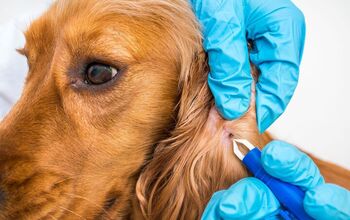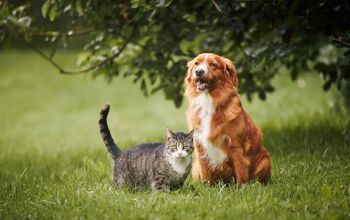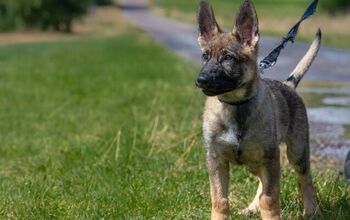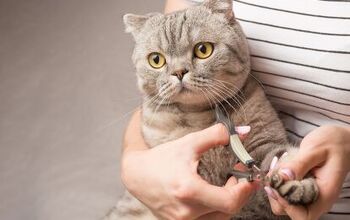A Wolf's Gut Bacteria May Treat Gastrointestinal Conditions in Dogs

A new type of gut bacteria found in a grey wolf may help treat domestic dogs diagnosed with inflammatory bowel disease. At this point, there is no cure for this common and debilitating condition that causes chronic vomiting and diarrhea in dogs and cats.
Researchers from Oregon State University Cascades’ biology program discovered a novel strain of Paenibacillus bacteria that possesses the characteristics of a probiotic. To study the effects of the novel probiotic bacteria, researchers collected gastrointestinal tract material from a dead wolf, a day after it died from injuries sustained in a car accident.
Researchers believe that this bacteria could treat inflammatory bowel disease in dogs.
Inflammatory bowel disease IBD is a syndrome that causes vomiting, weight loss, reduced appetite, flatulence, abdominal discomfort, and a rumbling stomach, explained Bruce Seal, a researcher from Oregon State University.
Possible causes for inflammatory bowel disease include parasitic or bacterial infections or reactions to a specific protein within the diet. However, in most dogs, the exact underlying cause can’t be identified.
“At present, there is no known cure for this ongoing dysbiosis [an imbalance of gut bacteria] of the gastrointestinal tract, and there are limited options for treatment,” said Seal, according to U.S. News. “Underlying causes of the condition include an animal’s genetics, environmental factors, the immunological state of the GI tract, and maybe most importantly, an altered gut microbiome.”
This research could possibly be the first step in creating a dietary supplement or food additive to help dogs have the microbiome of the wolf, explained the study authors.
Dogs were the first domesticated animal and share ancestry with the gray wolf. The lifestyle changes that occurred during domestication, including diet, have caused a decrease in gut microflora that may have caused an increase in inflammatory bowel disease in dogs.
“The diet of the modern dog does not reflect the diet of its ancestor, the wolf. For instance, the starch in the diets of the domestic dogs is resistant to digestion, which can potentially have a negative impact on gastric physiology,” said Seal in a paper published in the journal Applied Microbiology.
Researchers have isolated 20 different gut bacteria for which the preliminary testing showed to possess probiotic qualities. They also performed genome sequencing on a novel Paenibacillus strain.
“The bacterium inhibits the growth of other bacteria such as Staphylococcus aureus and encodes enzymes capable of digesting complex carbohydrates along with other gene systems expressing antimicrobials, thus indicating that this bacterial isolate could be a potential useful probiotic for domestic dogs,” said Seal.
In light of these results, researchers now plan to do genome sequencing on four or five other isolated bacterial species.
The gut microbe of captive wolves may adapt to become similar to dogs, so it makes sense for researchers to obtain new probiotics from wild wolves. These new probiotics can be used to replace microbiota that was lost during domestication.
These new findings show that the grey wolf can be used as a source of new bacterial strains that might be used as probiotics in dogs.
Researchers are confident that this new bacteria can help them find treatment for dogs suffering from inflammatory bowel disease.

Nevena is a freelance writer and a proud mom of Teo, a 17-year-old poodle, and Bob, a rescued grey tabby cat. Since childhood, she had a habit of picking up strays and bringing them home (luckily, her parents didn't know how to say NO). When she's not writing for her fellow pet parents, Nevena can be found watching Teo sleep. To her defense, that's not as creepy as it sounds!
More by Nevena Nacic























